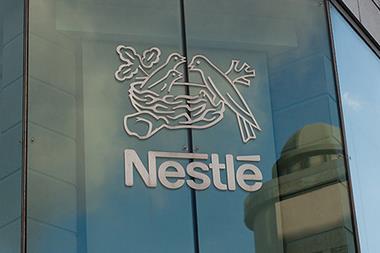
Recruitment is the “single biggest challenge” the food and drinks sector faces in boosting its productivity, Nestlé UK CEO Fiona Kendrick has warned.
Speaking at a ‘Productivity in Practice’ event hosted by the global manufacturer last week, Kendrick said: “The challenges for us at Nestlé and the rest of the sector are twofold: making sure we are able to keep upskilling our existing workforce; and recruiting a new generation to our workforces as existing people retire.”
Kendrick added that the sector was a “quiet success story” boosting productivity by 11% in the past five years, compared with only 0.6% across the wider economy, but “there is much more to do”.
High-level training to educate a new generation of workers with level 3 and 4 skills (a minimum of two A levels) would be required, she said, while a true “apprenticeship renaissance” would need a “powerful, evidence-led and independent institute for apprenticeships that has substantial employer representation.
“It means a levy framework which allows employers to decide what skills they need to develop, and how, and to access the funding accordingly.”
Her comments came only the day after the government published its draft bill for the new apprenticeship levy. It confirmed that from April 2017, employers with a wage bill of more than £3m will have to pay a 0.5% levy to fund apprenticeships.
Kendrick was joined at the event by minister for environment, food and rural affairs Elizabeth Truss, who cited FDF figures estimating the food and drinks sector will need 109,000 new recruits by 2022.
“We need all kinds of people with all sorts of different skills to be able to power the industry in the future,” she said. The government will hold an apprenticeship roundtable in March with leading food and drinks companies, she added, to help bring to fruition the FDF’s commitment to triple apprenticeships by 2020. “Trailblazer” apprenticeship schemes in food tech, butchery and bakery will also launch this year.
But the minister added increasing exports from the sector was also crucial to boost productivity. “We know that companies that export have higher productivity, their focus is sharpened by competing with overseas companies and in all kinds of markets,” she added.
Learnings from Nestlé’s own efforts to boost productivity will now inform the investment and legislative plan launched by the Prime Minister in July 2015.



















No comments yet